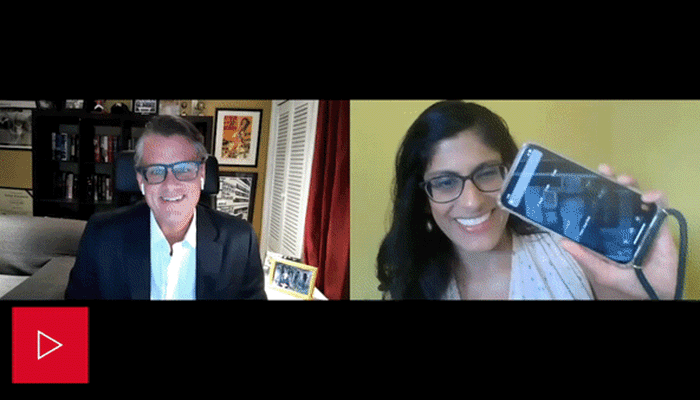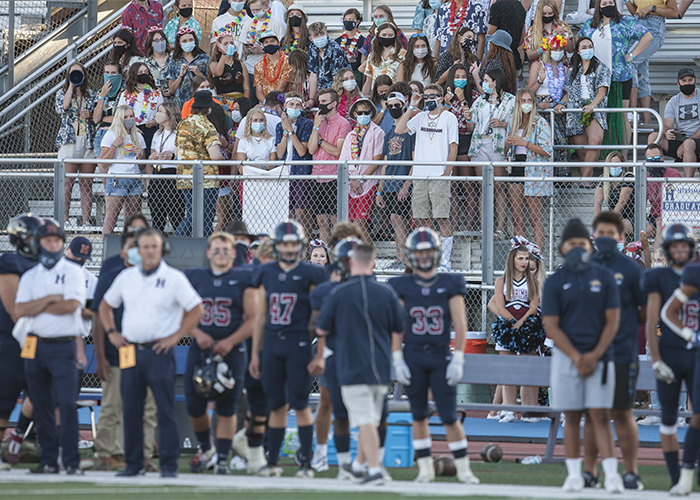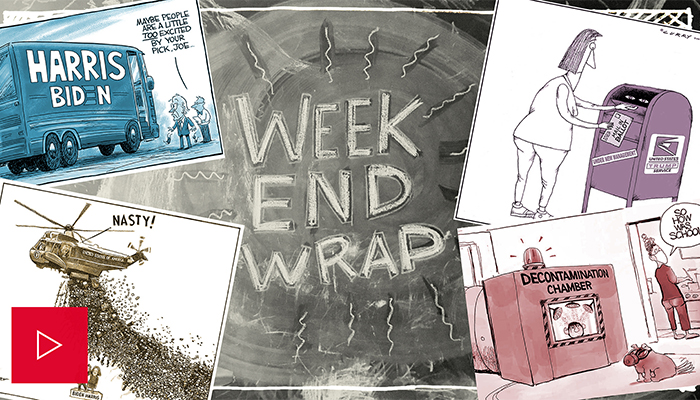I would be pissed off, too, with regard to the lack of financial support being provided to your important RSN daily broadcasts.
Your publication provides truth, which is neglected in the majority of media reporting and publications today.
Namasté.
Joseph C, M.D., RSN Reader-Supporter
If you would prefer to send a check:
Reader Supported News
PO Box 2043
Citrus Hts, CA 95611
It's Live on the HomePage Now:
Reader Supported News
RSN: Harvey Wasserman | How to Save 2020: The Grassroots Emergency Election Protection "Trifecta" Action Guide
Harvey Wasserman, Reader Supported News
Wasserman writes: "The 2020 election is not likely to be cancelled or postponed. But it CAN be sabotaged or stolen."
In cooperation with the Grassroots Emergency Election Protection Coalition (grassrootsep.org)
It will not be enough this year merely to register and vote. Nowhere near.
Those hoping for a fair outcome in the fall must NOW join election boards, become poll workers and poll watchers, and more. Wherever possible, all citizens committed to American democracy must be present for every aspect of the 2020 election process, including the post-election ballot counting and recounting.
This Guide is meant to lay out 2020’s vital details as simply as possible so YOU can ACT to make things right:
This fall’s outcome turns on the Election Protection Trifecta:
- Voter registration rolls
- Vote by mail
- Tabulation/recount of the ballots
All are under serious attack.
Losing just one can undermine all else.
THE SIX, TWELVE OR EIGHTEEN SWING STATES
The “EP Trifecta” of registration rolls, vote by mail, and ballot counting will play out differently in a series of state (plus DC) and county contests.
The Electoral College will likely decide the presidency based on Wisconsin, Michigan, Pennsylvania, North Carolina, Florida, and Arizona, followed by Ohio, New Hampshire, Georgia, New Mexico, Nevada, and Iowa, and then Maine, Texas, Kansas, Montana, Kentucky, and South Carolina. Many of the above have key US Senate races.
Less than 40 counties could determine the presidency. Less than 50 gerrymandered state legislative races could call the Congress.
The trifecta of protecting registration rolls, mailing ballots back and forth, and how they’re received and counted will decide the human future.
Only an informed, dedicated, grassroots groundswell can protect this election.
Less than three months remain to make that happen.
PRESSURE POINTS
Among the key challenges demanding grassroots election protection:
- Stop stripping the voter rolls
- Restore those wrongly removed
- Register new voters
- Proofread paper ballots before they’re printed
- Make sure they’re printed on time
- Make sure enough are printed for all registered voters
- Win reasonable official deadlines for ballot returns
- Get the ballots sent out early enough to return on time
- Provide secure neighborhood ballot drop boxes
- Provide safe places for any citizen to vote in person
- Support early voting
- Protect submitted ballots from arbitrary, partisan disqualification
- Get provisional ballots rightly counted
- Protect digital images
- Use the digital images to quickly provide the initial tally
- Preserve paper ballots for recounting
- Make sure deadlines for counting and recounting are met
- Protect the vote counts
ACTION PLAN / EXECUTIVE SUMMARY:
Anti-democracy forces have pledged $20 million to deploy 50,000 “volunteers” to the polls.
At least as many Election Protectionists must embed with state/county election boards, as soon as possible, for as long as necessary….
The millions who’ve marched for civil rights and police reform must now join local election operations through November 3 and beyond to guarantee a sustainable outcome.
After protecting the voter rolls, implementing Vote by Mail, and monitoring the vote count, we can deal with gerrymandering.
Groups listed at www.grassrootsep.org need your help to protect the election in key states and counties that will determine our future.
THE GRASSROOTS STATE & COUNTY ACTIVIST CORE
DC, the states, and the territories all vote differently, as do the 3141 counties within them. A single local board could flip an entire US presidential election.
A Koch-financed 2010 “Redmap Coup” embedded far-right legislatures in most of this year’s key swing states.
Nearly all have decimated election protection, promoting sabotaged, stolen vote counts. The key right-wing “pincer strategy” is to limit voting places while decimating vote by mail, vastly reducing turnout.
The COVID pandemic has reduced the 116,990 polling places in 2018 to a tiny fraction in 2020. Franklin County (Columbus) Ohio’s 2020 primaries had a single, shabby voting center in an abandoned, hard-to-find Kohl’s. Voters in Wisconsin and Georgia were exposed to COVID and armed Trump terrorists, who will certainly return November 3.
In response, the NBA Atlanta Hawks have volunteered their 21,000-seat arena. Voters can take a number, sit socially distanced, and see their turn on the scoreboard. Most stadia offer central, secure locations, with ample parking, restrooms, and food services.
In every state and county, true election protection demands an informed, committed coalition of grassroots activists, experts, and attorneys embedded in the local election boards, rooted in multi-racial/cross-generational coalitions. Among others, Joel Segal has helped organize just such a coalition in North Carolina, serving as a template for what needs to happen nationwide (contact: joel.r.segal@gmail.com).
Voters and vote counters alike have been physically assaulted throughout US history. Clearly 2020 will be no exception.
At the choke points of certifying incoming ballots and then facilitating the recounts, and at two dozen other key junctures along the way, this grassroots EP force could decide the American future.
2020’s primary vortex – its EP “trifecta” – goes like this:
PILLAR ONE: THE VOTER REGISTRATION ROLLS
The first “leg” of the election protection trifecta is to register new voters, protect those now on the rolls, and restore those who’ve been purged.
The federal Election Assistance Commission and the Brennan Center say some 17 million Americans have been stripped from the 2020 voter rolls.
Legitimate reasons for stripping can include death, change of residence, convictions for treason, etc. But John Roberts’s US Supreme Court has allowed local and state election boards to strip voter rolls based on race, class, ageist, ID, and other partisan pretexts.
Millions who assume they’re securely registered may not be. Everyone must check registration lists online or call the election board.
Among other groups, Andrea Miller’s People Demanding Action works to restore voters to the rolls and to add new ones.
PILLAR TWO: VOTE BY MAIL
In 2020 we expect the percentage of absentee or VBM ballots in many states to jump from 5% to as much as 80%.
At its best, VBM can represent a historic transition from hackable electronic machines to universal paper ballots. It’s long been the core system in Oregon, Washington, Colorado, Utah, and Hawaii.
But it’s now under serious attack. States like Texas, Georgia, and Ohio are making ballots hard to get. The assault on the US Postal Service throws their delivery into doubt. In states using VBM for the first time to this extent, logistical vulnerabilities are significant.
How effectively the grassroots EP movement protects VBM could define 2020’s outcome:
1. Printing and Publishing
Paper ballots must first be designed, printed, and published. Simple typos and deliberate manipulations can destroy elections.
“Butterfly ballots” in Florida 2000 induced elderly voters to mistakenly choose Pat Buchanan. Absentee ballots in Ohio 2004 omitted John Kerry
EP activists must proofread all draft ballots BEFORE they go to the printer, guarantee enough are printed for all registered voters, and make sure they get back to the election boards on time.
Ink specifications must be verified so ballots will be readable in electronic imaging machines.
2. The ballots must be carefully protected during initial delivery.
Once back at the election boards, the printed ballots must be protected before they go out to the voters.
Enough paper ballots must also be available at the polling stations to supply all registered voters who need one.
3. Who gets a ballot, when & how?
State and county election boards should simply send ballots to all registered voters, as early as possible.
Early in-person voting must also be made easy in all states and counties. “Souls to the Polls” begins now.
The earlier ballots are available, the less likely there will be problems on November 3. Voters who get them early should be encouraged to walk (rather than mail) them into election boards as early as possible.
But some partisan legislators, secretaries of state, governors, etc. have contrived to first send a voters postcard ... then (maybe) an application ... then (maybe) a ballot. All must meet firm deadlines.
Such flimsy, complex, time-consuming procedures add (deliberately) to the risk of documents being lost in the mail, ignored at home, trashed at the election board, etc.
Election protectors in all states and counties need a thorough knowledge of what’s going on with these procedures and how voters can be protected.
4. The military, diplomats, and other overseas Americans
The US military votes by mail, or electronically, often with reports that some officers may illegally intimidate soldiers into voting a certain way.
Deadlines and counting procedures can be problematic.
Jennifer Roberts, former mayor of Charlotte, North Carolina, and a former diplomat, says others voting from afar include overseas workers with the US Commercial Service, USDA, USIA, AID, and more; corporate executives and contractors working overseas with international companies; students studying abroad; teachers. Hundreds of thousands of ballots can be involved.
Unless protected, these votes can be lost, stolen, or manipulated.
5. Will return applications & ballots be pre-stamped, put in drop boxes, mass harvested, or what?
Election protectionists must work to guarantee that pre-paid return envelopes go out with VBM ballots, as required by law.
They should also encourage voters to walk their ballots into the election boards or put them in neighborhood drop boxes (which some election boards don’t want to provide). But care is needed: some election boards may require that walked-in VBM ballots be delivered before November 3.
“Ballot-harvesting” (i.e. the mass gathering of paper ballots) has already been linked to criminal fraud in North Carolina and elsewhere.
“Ballot parties” in elder/nursing homes conducted by partisan activists, where witnessing and/or notarizing can be accomplished, are a gray area.
6. Will there be a US Postal Service?
A sabotaged USPS will pose huge challenges to a fair 2020 election. This hallowed, unionized institution demands protection. The White House is already gutting the USPS, making clear its intent to subvert the fall balloting. Making Vote by Mail work in the face of official subversion will be among the greatest challenges ever faced by this nation.
Key in 2020 is getting ballot applications and then ballots out from the election boards to the voters and then back within a legal time frame. Deadlines vary, as do postmark requirements.
Ohio now requires that returning ballots be postmarked a week before November 3. In Wisconsin’s fall primary, many returning ballots were not postmarked at all; some counties accepted them, some did not.
So EP activists advocate all citizens vote in person as early as possible. Many are getting ballot applications from election boards and distributing them as widely as possible. Where allowed, some are printing them independently.
We encourage citizens to take ballots they receive in the mail and as quickly as possible fill them out and walk them into the election board (make sure you bring your envelope). We want neighborhood drop boxes and voting in arenas as well.
Above all, we want the functioning, protected and respected US Postal Service the nation deserves.
7. Early voting & where?
In 2020, election protection demands as many voting stations and drop boxes as possible, with as much early voting as can be made available.
Early in-person voting shrinks dependence on the USPS and uncertainty about whether ballots will actually arrive on time to be counted. It also helps avoid overcrowding and long lines on November 3.
Team Trump opposes neighborhood voting centers, drop boxes, and vote by mail, aiming to pinch voter turnout. (Voter ID requirements are also used to prevent non-millionaires of youth and color from voting.)
Ohio’s 2020 primary featured a single election center for each of the state’s 88 counties. In Franklin County (Columbus; pop. 1.3 million) it was in an abandoned Kohl’s department store in a remote, hard-to-find corner of Columbus. There were no drop boxes. Long lines (mostly in cars) built up through election day with voters trying to drop off their ballot or to obtain one. (Rural counties in Ohio had no such problems). On August 12, Ohio’s secretary of state ruled each Ohio county, no matter how big, would have just one ballot dropbox (he’s being sued).
Numerous safe, accessible election centers with ample parking must begin to operate well before November 3. Downtown sports arenas could be ideal.
8. Chain of custody
Tens of millions of paper VBM ballots will arrive at election boards, voting centers, and drop boxes this fall. There are always those who’d steal, destroy, corrupt them.
So they can’t be thrown around. Drop boxes demand cameras. Voting centers demand 24/7 security. Official results cannot be entrusted to laptops or thumb drives. Tally tapes must be posted in public as quickly as possible. Digital images must be preserved.
All votes cast, mailed, dropped must be protected, preserved, and properly prepared for precise, reliable counting and re-counting.
Above all, we don’t want them trashed, burned, pitched in rivers, or confiscated by armed troops deployed by the White House, all of which may take an EP army to prevent.
9. Voting centers, perhaps in sports arenas
Even with VBM, we still need well-advertised and convenient voting centers, with big parking lots for drive-by drop-offs to deal with special needs, registration issues, not having received a ballot, etc.
Well before election day, at universally known voting centers, citizens should be able to pick up and/or drop off ballots, register, consult with poll workers to straighten out registration issues, etc.
Centers should be open and staffed with long hours of access to avoid long lines and to provide timely, accurate, friendly service.
If Trump does mobilize thousands of armed thugs, election protection activists must be at the voting centers to embrace them.
In response, the NBA Atlanta Hawks have volunteered their 21,000-seat arena. Voters can take a number, sit socially distanced, and see their turn on the scoreboard. Most stadia offer central, secure locations, with ample parking, restrooms, and food services.
10. The Surrender Rule
With the attack on the Postal Service comes the need for voters to walk their ballots into voting centers and “surrender” them. To avoid long lines and mass confusion, it’s better to do that as early as possible.
Rules vary. But voters should always bring their envelopes as well as ballots. It can be possible to vote without them. But that could mean getting a provisional ballot, which may not be counted.
Before leaving, voters must confirm with poll workers that everything is properly filled out.
11. Election protection at the voting centers
Trump has promised $20 million for 50,000 paid, armed “volunteers” to threaten intimidation and violence at the voting centers. Nonviolent election protection activists – lots of them – will be needed to neutralize the assault.
Violent organized attacks, especially along racial lines, have been part of the American electoral reality since at least the end of the Civil War. Everyone who marched for George Floyd and police reform should now march to the polls to protect the vote.
12. Will Vote by Mail Mean Universal Paper Ballots?
Yes, VBM should mean a major transition to paper ballots, representing a huge leap away from the hackable electronic machines that have been used to steal so many of our elections in the past two decades.
True election protection also requires that all voting centers provide paper ballots to citizens who’ve not received them in the mail.
Appropriate electronic machines should be available for those with special needs.
But a hand-markable paper ballot must be available to all who want one, as the bulwark of this and all future elections.
Especially during this pandemic, electronic touch-screens can spread infection, and are even less acceptable than ever.
If the 2020 transition to paper ballots is successful, it can mark a major leap forward in all US elections to come. But getting there will require every ounce of our EP effort and energy.
13. Deadlines
Deadlines for ballot mail-out, postmarking, receipt, counting, recounting, and final reporting of the official tally must be clear and transparent to the public, the media, lawmakers, the courts …and the world.
In Florida 2000 and 2018, tens of thousands of votes were simply trashed because arbitrary counting and recounting deadlines weren’t met. Upheld by the Supreme and other courts, such deadlines have had decisive impacts on races for the presidency, governorships, US Senate seats, and more.
EP activists embedded at the precincts must work to make sure all deadlines are appropriate, reasonable, and completely public.
14. The Ballot Acceptance Choke Point
2020’s most critical and least discussed pressure point may be the moment of decision on whether to accept or reject mailed-in ballots.
Procedures will vary widely between states, counties, and precincts. In all or nearly all cases, a poll worker will examine the incoming ballots one-by-one.
They will accept or reject based on a wide range of inconsistent criteria, ranging from signature verification to the tiniest omission of the least significant details. Such would include the omission of middle names or initials, a misstated address, the lack of a date, putting information above or below an arbitrary line, missing a box, etc.
In many precincts “independent observers” are allowed to sit next to poll workers and lobby (or strong-arm) for the acceptance or rejection of individual ballots. In 2016, many of these critical decisions were turned by right-wing enforcers seated at the sorting table.
In 2020, grassroots election protectionists must be embedded at the critical juncture of this decision-making process. In a massive VBM deployment, literally millions of ballots will arrive with small glitches, errors, inconsistencies that are entirely irrelevant to the validity of the voter’s intent. Here EP activists must be personally present to make sure nonpartisan balance is at the core of the acceptance/rejection process.
In many places, the law allows election boards to telephone voters and let them return to correct obvious inadvertent errors. EP activists everywhere must guarantee that this happens as often as appropriate.
They must also work to avoid unnecessary, contrived delays that could clog the system and push vote-counting beyond critical deadlines.
15. Voter ID, signature verification, witness & notarization requirements
In reality, decisions made on who can and can’t vote turn in many states on details meant to eliminate voters by race, class, age, likely party leanings, etc. These include arbitrary photo ID requirements that in some states are being imposed even on mail-in ballots.
Texas accepts a gun or hunting license, but not a student ID. Some states require that a mailed-in ballot include a document signed by one or two witnesses, plus notarization. The COVID and other restrictions can make it impossible for elders and others to do that. Some nursing home employees are banned from serving as witnesses.
Registering the homeless, and thousands of the Indigenous who have only post office boxes, represents a huge challenge with no easy answer beyond hard EP work at the real grassroots.
Ultimately, there’s no easy or consistent way around these often arbitrary and always confusing barriers to voting except at the nitty-gritty precinct level, with on-the-spot activists standing their ground.
16. Internet Registration & Voting, Vote by Phone, the Digital Divide
Some states now accept ballot applications via the internet.
This unjustly favors the urban educated. But it’s reliable, and it avoids the delays and dangers that come with registering by mail or in person. EP activists can use laptops or digital phones to register citizens who don’t have their own internet access.
Such is NOT the case with submitting and counting actual ballots, or transmitting outcomes from precincts to voting centers. Any actual voting or vote counting entrusted to the internet at any point in the process is hackable, vulnerable, and unacceptable.
PILLAR THREE: COUNTING & RECOUNTING THE BALLOTS
In addition to the challenges of safely storing them, early VBM ballots that arrive before November 3 could tempt locals officials to do early counting, and then to leak results (real or concocted).
This can’t happen. Ballots that come in early must remain secured and unopened until 7 p.m. local time on November 3. There’s no legitimate reason to open or count them beforehand.
Electronic ballot imaging machines are in place at 80% or more of our US precincts. The paper ballots that are mailed in to – or filled out at – the election centers can, starting at 7 p.m. November 3, be inserted into these machines.
The machines in turn produce an electronic ballot image. The paper ballots go into clear plastic bins on the backside, preserved for recounting.
These ballot imaging machines can deliver an accurate tally of even very large numbers of votes within a few minutes.
But some election officials insist on erasing the electronic images, which is illegal under federal law. A Florida lawsuit (which should not be necessary) now aims to stop this.
Even if the ballot images are computer-read for a fast initial vote count, recounts using the preserved paper ballots are inevitable. And reporting deadlines that must be met to validate the (re)counts vary widely.
In south Florida, 2000, when a “Brooks Brothers mob” assaulted poll workers, the US Supreme Court made G.W. Bush president.
In Ohio 2004, a federally mandated recount failed when official records from 56 of Ohio’s 88 counties “disappeared.” US Senate and governor’s races in Florida 2018 were decided when dense Southern counties couldn’t meet critical deadlines, effectively trashing thousands of legitimate votes.
In 2020, all key swing states will likely be forced into recounts. EP activists must be present to guarantee they’re done securely, reliably, and quickly enough to meet legal deadlines.
The real test will come in the precincts, as deadlines loom and those tabulating the ballots may be assaulted by hired thugs. If election protectionists aren’t there to guarantee all ballots are admitted and counted fairly, 2020 could be decided by armed terrorists.
ACT NOW!!! BECOME AN ELECTION PROTECTIONIST
What can I do to save 2020?
Contact your state coordinator (see listings @ www.grassrootsep.org).
- Pick a critical county/precinct.
- Hook up with an EP organization already in place.
- Learn everything about how your chosen county will conduct its election.
- Apply to get on the election board.
- Learn everything you can about who’s already on it.
- Apply to be a poll worker.
- Learn how to become a ballot acceptance worker/observer.
- Inspect the voter rolls.
- Find those who’ve been wrongly stripped & get them re-registered.
- Register new voters (maybe using your cell phone or laptop).
- Spread ballot applications far & wide.
- Encourage early mail-outs of ballot applications.
- Watch how the actual ballots are drafted.
- Follow the trail of how they’re printed.
- Make sure enough are printed for all potential voters.
- Encourage their rapid return from the printer.
- Watch to see that the ballots go out as early as possible.
- Watch to see the ballots go to everyone who is due one.
- Make sure envelopes have return postage on them.
- Be available to help those who are confused or restricted in voting.
- Protect the acceptance of rightfully submitted ballots.
- Encourage early voting.
- Get sports arenas accepted as voting centers.
- Encourage neighborhood drop boxes.
- Prepare to non-violently confront anti-vote terrorists.
- Monitor the chains of custody.
- Prepare to protect ballots from troops deployed by the White House.
- Protect digital scanners from being hacked.
- Help feed ballots into the digital scanners.
- Make sure digital ballot images are preserved.
- Work to guarantee recounts meet legal deadlines.
Listings of allied organizations, state coordinators, critical documents, Trifecta articles, and more appear at www.grassrootsep.org.
Join our weekly (usually Monday) Zoom meetings as linked at
https://grassrootsep.org/zoom-meeting-schedule/.
Next Zoom gathering is Monday, August 24, at 5 p.m. Eastern Time.
Write to me at solartopia@gmail.com
No More Stolen Elections!!!!
Harvey Wasserman co-convenes (with Joel Segal) the Grassroots Emergency Election Protection Coalition at www.grassrootsep.org. His People’s Spiral of US History awaits Donald Trump’s departure at www.solartopia.org. His radio shows are at prn.fm and KPFK/Pacifica-90.7 fm Los Angeles.









